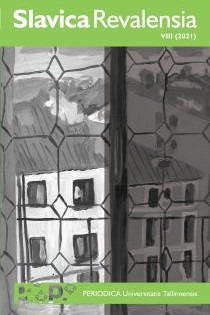«Мертвые Цари всегда должны по смерти своей быть судимы»: Посмертная судьба одного древнеегипетского обычая в русской и европейской словесности XVI – XIX вв. [“Dead Kings Must Always be Judged after Their Demise”: The Afterlife of an Ancient Egyptian Custom in the Russian and European Literature of the 16th to 19th Centuries]
DOI:
https://doi.org/10.22601/SR.2021.08.01Keywords:
16th to 19th-Century European and Russian Literature, Diodorus Siculus (1st century BC), Jean-Jacques Rousseau (1712—1778), Alexander Pushkin (1799—1837), Prince Pyotr Vyazemsky (1792—1878), Egyptian Сourt, Locus communis, Political Rhetoric, Literary Criticism, Pantheonization, History of IdeasAbstract
In his Bibliotheca historica, Diodorus Siculus described a peculiar Egyptian custom of judging all the dead (including the pharaohs) before their burial. The Greek historian saw it as a guarantee of Egypt’s prosperity, since the fear of being deprived of the right to burial served as a moral imperative. This story of an Egyptian custom fascinated the early modern authors, from lawyers to novelists, who often retold it in their own manner. Their interpretations varied depending on the political context: from the traditional “lesson to sovereigns” to a reassessment of the role of the subject and the duties of the orator. This article traces several intellectual trajectories that show the use and misuse of this Egyptian custom from Montaigne to Bossuet and then to Rousseau—and finally its adaptation by Pushkin and Vyazemsky, who most likely became acquainted with it through the mediation of French literature.
The article was written in the framework (and with the generous support) of the RANEPA (ШАГИ РАНХиГС) state assignment research program.
Downloads
Published
Issue
Section
License
Copyright (c) 2021 Slavica Revalensia

This work is licensed under a Creative Commons Attribution-ShareAlike 4.0 International License.

